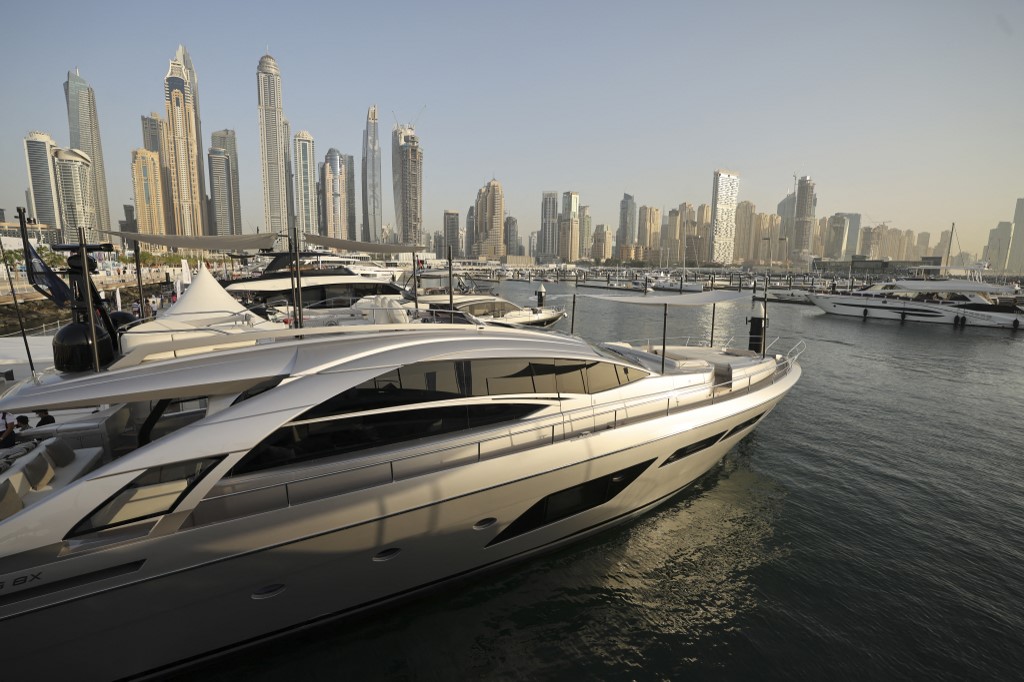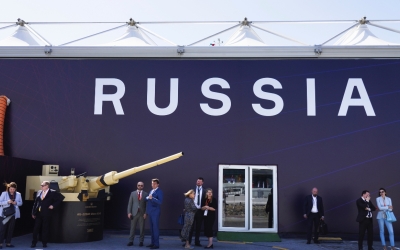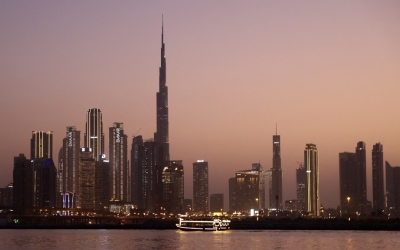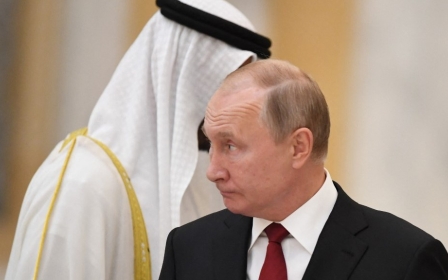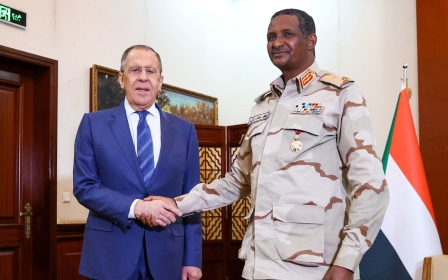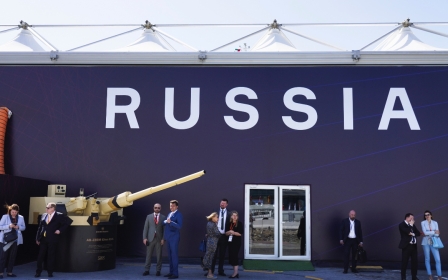US and UAE heading for showdown over Russian sanctions evasion
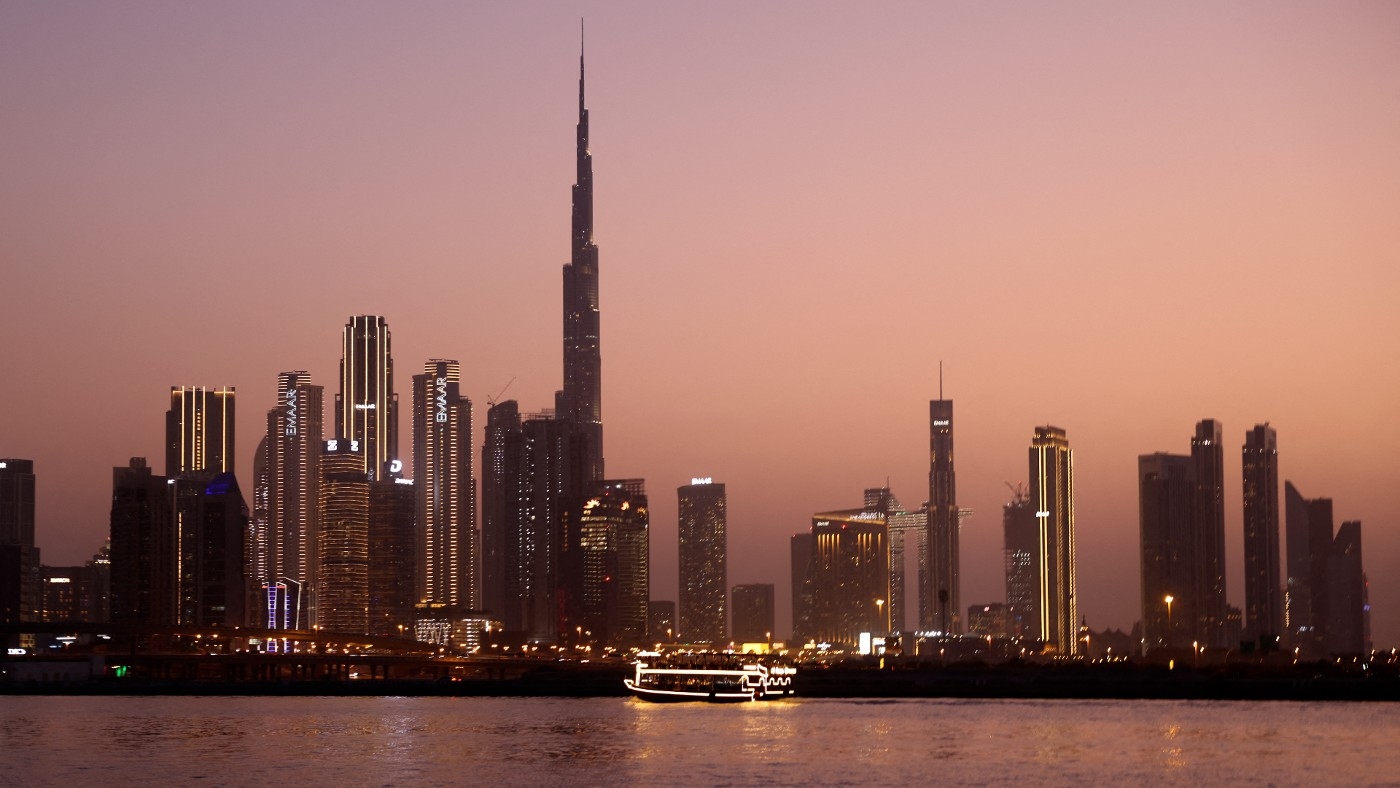
At the end of January, a high level delegation from the United States travelled to the United Arab Emirates.
Led by Brian Nelson, the under secretary of the treasury for terrorism and financial intelligence, the trip was preceded by a private diplomatic note stipulating that the US officials wanted to meet with high-level members of Abu Dhabi’s ruling al-Nahyan family.
The Americans were in the Gulf to “continue coordination on illicit finance and other regional issues”, meaning that they had come to talk about how the UAE is being used to circumvent western sanctions on Russia. This visit was followed not long after by one from James O’Brien, the head of sanctions at the US State Department.
'The Emiratis surely would prefer not to have to choose between Russia and the US'
- Jonathan Winer, former US special envoy to Libya
O’Brien, who used to work for the Albright Stonebridge Group, the consulting firm set up by US Secretary of State Madeleine Albright after she left government in 2001, is a longstanding Democrat insider going back to the days of Bill Clinton, who he served as special presidential envoy for the Balkans.
He is very close to the current secretary of state, Antony Blinken, and to Susan Rice, Joe Biden’s domestic policy adviser, who was Barack Obama’s national security adviser.
This flurry of activity is no accident. Washington is fast losing patience with the UAE, as its ally continues to help Russia evade sanctions imposed in the wake of the invasion of Ukraine.
A day of reckoning is coming, with the Biden administration intent on forcing some kind of action from Abu Dhabi.
“The Emiratis surely would prefer not to have to choose between Russia and the US,” Jonathan Winer, former US special envoy to Libya and a non-resident scholar at the Middle East Institute, told MEE. “But in this situation you can’t be neutral. Any supposed neutrality is actually a choice to support Russia.”
Last week, the UAE emerged as a “country of focus” for Washington, as US Treasury official Elizabeth Rosenberg said that Emirati companies had exported more than $18m worth of goods to “US-designated Russian entities” between July and November 2022.
According to Rosenberg, $5m of that was made up of “US-origin, US-export controlled goods to Russia”, including “semiconductor devices, some of which can be used on the battlefield”.
In 2022, the year Moscow went to war in Ukraine, trade turnover between Russia and the UAE increased by 68 percent, reaching a record level of $9bn.
Hosting his Emirati counterpart Mohammed bin Zayed Al Nahyan in Saint Petersburg last October, Russian President Vladimir Putin hailed the ongoing development of bilateral relations between the two countries.
Dubaigrad
Strategically situated between Asia and Africa, the UAE - particularly the emirates of Abu Dhabi and Dubai - has become one of the primary destinations for Russian companies leaving Europe and wealthy Russian individuals leaving Russia.
Powerful Russians who might once have done their business in London or Switzerland have moved to Dubai or Abu Dhabi, where they can continue to enjoy the lifestyles they are used to and do the work they do without undue attention.
Super-yachts belonging to sanctioned Russian billionaires including Andrei Skoch, “nickel king” Vladimir Potanin and steel tycoon Alexander Abramov have all been seen docked at the Mina Rashid marina, near the mouth of the Dubai Creek, according to the Whale Hunting newsletter.
Last March, former Chelsea Football Club owner Roman Abramovich, another sanctioned Russian billionaire, was spotted house-hunting on Dubai’s Palm Jumeirah.
“Londongrad is more or less over,” a British investment banker told MEE, in reference to the once overwhelming presence of Russian money and business in the City of London.
“There’s a huge sanctions list and lots of people are wary when it comes to anything to do with Russia… There are a tremendous number of LLCs (limited liability companies) and shell companies in the UAE that can be used for this work.”
According to Olivia Allison, an independent consultant looking at money flows in and out of the UAE to Russia, western governments are looking at sanctions evasion in the UAE relating to oil, financial and corporate structures, and trade in sanctioned and dual-use goods.
A lot of Russians working in professional services have relocated to Dubai since the start of the war. “I can say that the Russian community has grown exponentially since the war began,” said Ivan, a Russian tech worker who was already living and working in Dubai and who did not want to give his full name.
'I can say that the Russian community has grown exponentially since the war began. Lots of creative agencies, developers, production studios'
- Ivan, Russian tech worker in Dubai
“Lots of creative agencies, developers, production studios, a few retail brands: all are trying to establish an alternative here in the UAE.”
The Russians moving to Dubai tend to be wealthy professionals. Many of them are not supporters of the war or of Vladimir Putin, but are still working for Russian companies because they have no other way of maintaining their lifestyles.
Russian companies are, like Russian people, moving from Europe to the UAE, particularly Dubai.
“I think the UAE is the most attractive option because everyone is there,” Allison told MEE.
“Many sanctioned Russians are working through Dubai. A key role the UAE plays is being a middle man, including in the past in relation to other sanctions evasion. There is a lot of know-how about how to get around sanctions.”
The US has previously accused Emirati firms of facilitating Iranian sanctions evasion.
“It is very easy to anonymise trade in the UAE and it is very easy to obscure the real ownership of businesses,” Allison said.
This has long been how controversial power players have greased the wheels, whether in the Gulf or the City of London. The aim is plausible deniability. A sanctioned Russian oligarch can always set up a company in his cousin’s name.
Transit for Russia-bound goods
According to a geopolitical analyst based in Delhi, goods - often food - are coming from all over the world to Russia via the UAE. “Russia was not prepared for a long war,” the analyst, who preferred to remain anonymous, said.
“For example, they ran out of toilet paper. Goods and produce come from India, Singapore, Macau, or wherever. They are transited through the UAE - usually Dubai but sometimes Abu Dhabi - and are then moved on with the port of origin marked as the UAE.”
The UAE is now full of middlemen acting on behalf of sanctioned Russians and other entities. In a kingdom full of finance, trade and other business people from all over the world, the opportunity to cut a deal - including with Americans - is always there.
'Goods and produce come from India, Singapore, Macau, or wherever. They are transited through the UAE...and are then moved on [to Russia]'
- Indian analyst
In October last year, five Russian nationals and two oil traders were charged in New York in a global sanctions evasion and money laundering scheme.
One of the Russians, Yury Orekhov, was based in Dubai. He bragged about using the “shittiest bank in the Emirates” as part of a plan to “unlawfully obtain US military technology and Venezuelan sanctioned oil through a myriad of transitions involving shell companies and cryptocurrency”.
Commenting on the case, FBI agent Jonathan Carson said: “We will continue to enforce the unprecedented export controls implemented in response to Russia’s illegal war against Ukraine and the Office of Export Enforcement intends to pursue these violators wherever they may be worldwide.”
The Delhi-based analyst, who advises a large regional government, said he thought the true value of this kind of sanctions-evading trade was being seriously downplayed and that there was no real way of establishing more accurate figures.
MEE understands that some large banks and retail companies are also frustrated about sacrificing the profits available to those who access the Russian market. Many western companies have forgone trade with Russia not because of sanctions but because they know that to do so would be bad PR.
The changing demographics in Dubai have been noted by longtime foreign residents. “It’s hard not to notice the influx of Russians, they’ve come in their droves,” one Englishman, who has lived in Dubai for 10 years, told MEE.
“The biggest issue for long-term residents like me is they’re all very cash rich so they’re driving up property prices and rentals. The cost of living here is causing a lot of people to consider leaving.”
A history of lobbying
American frustration with the Emiratis goes back at least to the Obama years, when the UAE was developing ties with Moscow. The UAE brokered a secret meeting in January 2017 between Erik Prince, founder of the security firm Blackwater, and Kirill Dmitriev, the CEO of the Russian Direct Investment Fund, a Russian sovereign wealth fund.
The meeting with Prince, a close ally of Donald Trump, was part of an apparent effort to establish a backchannel between Moscow and the then-incoming president, according to US and European officials.
'The Emiratis might prefer to straddle on the Russia-Ukraine issue to await the potential return of Trump or a Trump clone'
- Jonathan Winer, US diplomat
Since then, Russian and Emirati interests have converged in Libya, where Moscow’s aspirations were viewed mostly through the activities of the Wagner Group, a private mercenary outfit that has operated in Syria, Ukraine and the Central African Republic and is led by Putin associate Yevgeny Prigozhin.
Wagner fighters, deployed to Libya with Moscow’s consent in 2019, are believed to have been funded by the UAE, at least initially.
In Washington, the Emiratis enjoyed a great deal of sway during the Trump years. Despite the Emirati ambassador to the US, Yousef al-Otaiba, being one of the best-connected diplomats around, the American capital swelled with lobbyists acting on behalf of Abu Dhabi.
Since 2016, the UAE has spent more than $154m on lobbyists, according to US Department of Justice records reported by MEE in December 2022.
Elliott Broidy and George Nader, who worked to lobby against Qatar on behalf of the UAE and Saudi Arabia, were prominent examples. Tom Barrack, a Trump ally, was indicted on nine charges stemming from his alleged lobbying for the UAE. He was found not guilty in November 2022.
“The Emiratis had the privilege during the Trump Administration of having huge influence on US policy in the MENA region through personal relationships they developed with people in the White House,” Jonathan Winer told MEE.
“They might prefer to straddle on the Russia-Ukraine issue to await the potential return of Trump or a Trump clone. But current events may not allow for that.”
The Delhi-based analyst called the idea that the UAE would do anything significant to curb Russian sanctions evasion an “American pipedream”.
Implementing financial mechanisms takes a long time. Meanwhile, the clock ticks on toward US presidential elections in 2024, and the possible return to power of a Republican.
“The Emiratis have their own national interests, and they are not fully aligned with those of the United States. They comply with US requests when they assess that it is in their overall interests to do that,” Winer, the former US official, told MEE.
“Helping Ukraine defend itself against the Russian invasion is of vital importance to the Biden Administration. So the choices the Emiratis make here will inevitably have broader consequences for the bilateral relationship so long as President Biden remains in office.”
This article is available in French on Middle East Eye French edition.
Middle East Eye propose une couverture et une analyse indépendantes et incomparables du Moyen-Orient, de l’Afrique du Nord et d’autres régions du monde. Pour en savoir plus sur la reprise de ce contenu et les frais qui s’appliquent, veuillez remplir ce formulaire [en anglais]. Pour en savoir plus sur MEE, cliquez ici [en anglais].


